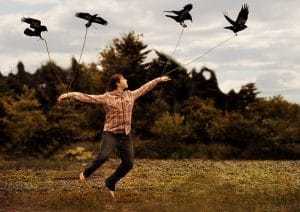Rebecca C. Mandeville
Goodreads Author
Born
in The United States
Website
Twitter
Genre
Member Since
August 2020
URL
https://www.goodreads.com/rebeccamft
To ask
Rebecca C. Mandeville
questions,
please sign up.
Popular Answered Questions

|
Rejected, Shamed, and Blamed: Help and Hope for Adults in the Family Scapegoat Role
—
published
2020
—
11 editions
|
|

|
Het zwarte schaap van de familie
by |
|
* Note: these are all the books on Goodreads for this author. To add more, click here.
“Recovering from family scapegoating requires recognizing that being the ‘identified patient’ is symptomatic of generations of systemic dysfunction within one’s family, fueled by unrecognized anxiety and even trauma. In a certain sense, members of a dysfunctional family are participating in a ‘consensual trance‘, i.e., a ‘survival trance’ supported by false narratives, toxic shame, anxiety, and egoic defense mechanisms, such as denial and projection.”
― Rejected, Shamed, and Blamed: Understanding Family Scapegoating Abuse
― Rejected, Shamed, and Blamed: Understanding Family Scapegoating Abuse
“As painful as it is to be scapegoated by your family, you might be surprised to learn that there are positive, empowering aspects associated with the ‘scapegoat’ role, as described in the original biblical
story of the ‘scapegoat ritual of atonement.’ It may be that certain qualities you possess, such as intuition, empathy, and compassion, led to your becoming the target of family scapegoating abuse, as
paradoxical and confusing as this may initially seem.”
― Rejected, Shamed, and Blamed: Help and Hope for Adults in the Family Scapegoat Role
story of the ‘scapegoat ritual of atonement.’ It may be that certain qualities you possess, such as intuition, empathy, and compassion, led to your becoming the target of family scapegoating abuse, as
paradoxical and confusing as this may initially seem.”
― Rejected, Shamed, and Blamed: Help and Hope for Adults in the Family Scapegoat Role
“While disagreements and interpersonal conflicts are common in even the healthiest of family systems, family scapegoating goes far beyond this, making recovering from its impact and effects difficult. For example, more than half of those who responded to an FSA survey I conducted have been described as
“mentally ill”; “emotionally sick,” or “a liar” by a parent or other relative when there was absolutely no truth to this whatsoever. Naturally, being spoken about in this way can be confusing, angering, and even traumatizing to the target of such hostile
and defamatory statements.”
― Rejected, Shamed, and Blamed: Help and Hope for Adults in the Family Scapegoat Role
“mentally ill”; “emotionally sick,” or “a liar” by a parent or other relative when there was absolutely no truth to this whatsoever. Naturally, being spoken about in this way can be confusing, angering, and even traumatizing to the target of such hostile
and defamatory statements.”
― Rejected, Shamed, and Blamed: Help and Hope for Adults in the Family Scapegoat Role
“Recovering from family scapegoating requires recognizing that being the ‘identified patient’ is symptomatic of generations of systemic dysfunction within one’s family, fueled by unrecognized anxiety and even trauma. In a certain sense, members of a dysfunctional family are participating in a ‘consensual trance‘, i.e., a ‘survival trance’ supported by false narratives, toxic shame, anxiety, and egoic defense mechanisms, such as denial and projection.”
― Rejected, Shamed, and Blamed: Understanding Family Scapegoating Abuse
― Rejected, Shamed, and Blamed: Understanding Family Scapegoating Abuse
“Adult survivors of family scapegoating abuse have historically been diagnosed with one or more mental health conditions that ignore the trauma symptoms they are regularly experiencing. Rarely will their most distressing symptoms be recognized as Complex post-traumatic stress disorder (C-PTSD) secondary to growing up in an unstable, non-nurturing, dangerous, rejecting, or abusive family environment.”
― Rejected, Shamed, and Blamed: Help and Hope for Adults in the Family Scapegoat Role
― Rejected, Shamed, and Blamed: Help and Hope for Adults in the Family Scapegoat Role
“While disagreements and interpersonal conflicts are common in even the healthiest of family systems, family scapegoating goes far beyond this, making recovering from its impact and effects difficult. For example, more than half of those who responded to an FSA survey I conducted have been described as
“mentally ill”; “emotionally sick,” or “a liar” by a parent or other relative when there was absolutely no truth to this whatsoever. Naturally, being spoken about in this way can be confusing, angering, and even traumatizing to the target of such hostile
and defamatory statements.”
― Rejected, Shamed, and Blamed: Help and Hope for Adults in the Family Scapegoat Role
“mentally ill”; “emotionally sick,” or “a liar” by a parent or other relative when there was absolutely no truth to this whatsoever. Naturally, being spoken about in this way can be confusing, angering, and even traumatizing to the target of such hostile
and defamatory statements.”
― Rejected, Shamed, and Blamed: Help and Hope for Adults in the Family Scapegoat Role





















